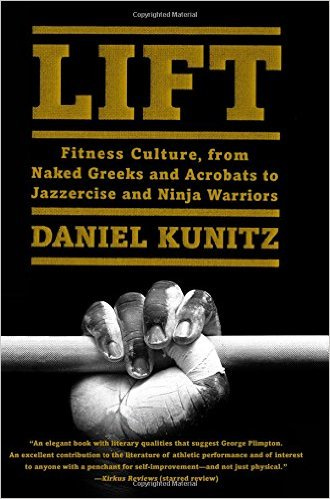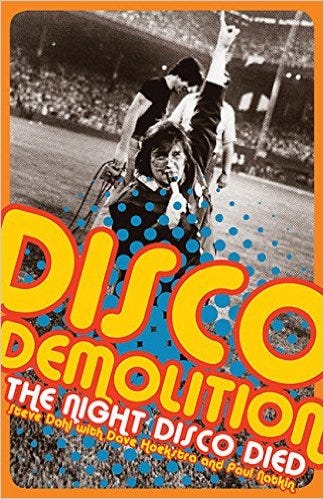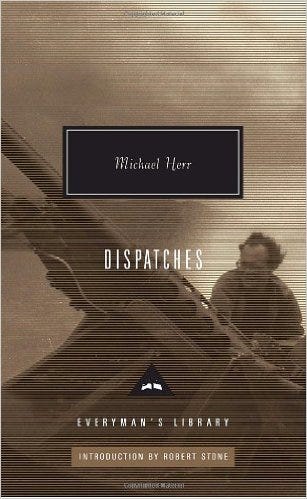Sports Biblio Digest, 6.26.16: LeBron James and the G.O.A.T. Debate

News, Views and Reviews About Sports Books, History and Culture
Also In This Issue: Messi vs. Maradona; Doc Emrick in the Baseball Booth; High Times for Iceland; Remembering John Gaustad
Welcome to the Sports Biblio Digest, an e-mail newsletter delivered each Sunday. You can subscribe here and search the archives.
This is Digest issue No. 45, published June 26, 2016. The Digest is a companion to the Sports Biblio website, which is updated every Monday, Wednesday and Friday. To view this newsletter in a browser, please click here.
I’d love to hear what you think about the Digest, and Sports Biblio. Send feedback, suggestions, book recommendations and requests for interviews to Wendy Parker, sportsbiblio@gmail.com. You can also follow Sports Biblio on Twitter and hit the “like” button on Facebook.
EDITOR’S NOTE: There will not be a newsletter next Sunday, July 3, as I’m taking a break for the July 4 holiday weekend.
* * * * * * * *
I had to turn off Facebook and other social media channels this week for a reason I never imagined.
There was as much anger on my feeds over LeBron James and the Cleveland Cavaliers winning the NBA championship as there was over gun control legislation stalled in Congress, leading to a Democratic sit-in.
James has been a lightning rod since he came out of high school, especially with promises that he was going to surpass Michael Jordan as The Greatest Of All Time.
Those proclamations were renewed after his masterful Game 7, punctuated by a killer block on Golden State’s Andre Iguodala late in the fourth quarter. Kyrie Irving's three-point basket gave the Cavaliers their first title, and clinched Cleveland’s first championship since the Browns in 1964.
The Cleveland Plain-Dealer printed many extra copies (on one of its designated non-print days) and Wednesday’s victory parade was reportedly the sixth-largest sports celebration ever.
Joe Posnanski had a razor-sharp assessment of the Cavaliers’ feat—the first team to win the NBA title after trailing 3-1, and a new ending to the recent “Believeland” documentary has been added.
Lit Hub dusted off “The Homeric Epic of LeBron James,” from Akron native David Giffels' 2014 collection “The Hard Way on Purpose: Essays and Dispatches from the Rust Belt,” which was put together while James was still playing with the Miami Heat:
“I have heard James criticized for being more interested in his ‘brand’ than his athletic legacy. But that’s missing the point. His basketball talent, his basketball legacy, is a means to something else, and it’s something unique in the history of sports celebrity. It’s a means to the journey back through his own narrative, to translate the code written literally and figuratively on himself.”
I still think Jordan is the G.O.A.T., but some of my Tweeps wanted to label anyone with such an opinion as a James “hater.” Sometimes I think discussion about James (and his “legacy”) has become as unhinged about arguments over steroids and the Baseball Hall of Fame.
While I wanted the Warriors to win, I deeply admire James and no doubt believe he’ll be regarded with the best players of all time. In fact, he’d be in my “starting five” right now with Jordan, Bill Russell, Kareem Abdul-Jabbar and Magic Johnson.
My point is that James’ career, while likely at its peak, isn’t over. Shouldn’t a discussion about G.O.A.T. wait until he’s done, and preferably after he is inducted in the Basketball Hall of Fame?
It appears as though I am grandly out of fashion for wishing for a bit of historical circumspection in a time of overheated hyperbole. As my friend Jeff Jacobs wrote in the Hartford Courant this week, “When Stephen A. Smith is de rigueur and Red Smith is a relic that tells you plenty.”
A James hater extraordinaire, Scott Raab, author of “The Whore of Akron,” offered his mea culpa on the Hang Up and Listen podcast on Slate, so maybe it's possible for everybody to chill out during an already hot summer.
Messi and Maradona
A similar argument could soon be playing out in soccer. Argentina and Lionel Messi will be playing for its first Copa America title since 1993 on Sunday against Chile near New York City.
After leading Barcelona to repeated Spanish and European club glory, the 29-year-old Messi has a chance to win an elusive major championship for his nation. He may never be regarded in the company of his countryman and former coach, Diego Maradona, until he wins a World Cup, and Argentina’s 2014 runner-up finish to Germany was a bitter disappointment.
Just like James, I think it’s too soon declare Messi to be soccer’s G.O.A.T., although I think he’s the best player since Maradona, whom I think is right with Pelé at the top of that sport's heap.
For Messi to raise the Copa America trophy at MetLife Stadium would accelerate that debate, two years ahead of what most likely will be his last World Cup.
Women’s Sports and Title IX
The 44th anniversary of the passage of the gender equity law was on Thursday, and on the podcast I discussed a couple of books that tell a little-known story about the growth of women’s college sports. My earlier posts this week were about what I think is some very lacking bibliography and media coverage of women’s sports, but not for the same reasons cited by the usual activists.
Women’s sports is a “badly underdeveloped field,” according to sports historian Allen Guttmann, author of the essential “Women’s Sports: A History.” Twenty-five years after that book's publication, I argue that the genre needs better history, of the global and timeless historical reach he demonstrated, and less feminist ideology.
A Few Good Reads
On the 70th anniversary of Jackie Robinson signing a minor league contract with the Montreal Royals, the original paperwork—long thought to have been lost—has returned to “La Métropole;”
It was a hundred years ago today—June 26, 1916—that a Major League Baseball team wore numbers on uniforms for the first time. Todd Radom writes at The Sporting News how the novelty displayed by the Cleveland Indians was initially met with skepticism, especially from newspaper writers;
Legendary hockey announcer Mike Emrick, a longtime Pittsburgh baseball fan, is set to call the July 8 Cubs-Pirates game;
Bryan Curtis talks to Jim Gray, whom he dubs the Zelig of Sports, for his interview-landing acumen, most notably the LeBron James-related The Decision;
Jonathan Wilson previews the Iceland-England match in the Euro Round of 16 on Monday. In its first major international soccer tournament, Iceland is the smallest nation (by population) to compete in the event. But the team is making quite a splash in advancing, and so is announcer Gummi Ben, screeching at the winning goal against Austria and giving his Southern American rivals some serious competition in the Sheer Joy department;
England’s 1966 World Cup victory—examined in last week’s newsletter—is the subject of a new exhibit of memorabilia that opened Friday at the National Football Museum in London. Among the items that will be on display until April of next year is Geoff Hurst's jersey, which will be auctioned off;
How will British sports be affected by Brexit?
Karch Kiraly won a gold medal for the U.S. men’s volleyball team in 1984. Now he’s coaching the women in Rio, and they’ve never won the top spot at the Olympics;

The Black College Football Hall of Fame, founded in 2009 by ex-NFL quarterback and Grambling coach Doug Williams, among others, has found a home in at the Pro Football Hall of Fame in Canton, Ohio;
Wimbledon starts on Monday, and the All-England Club wants its event to become as big as the Super Bowl. No, really, after decades of being “defiantly uncommercial.” Is Wimbledon losing its relevance with American tennis fans?
Don’t be this guy: The Greek hero at the gym, from Daniel Kunitz’ forthcoming “Lift,” a history of fitness culture;
A tale of the long and winding road, a middle-aged cyclist’s odyssey, veers from coast to coast, New York to California;
A media panel selected the 20 best players in the history of the WNBA, which is marking its 20th season. The only player I would have had on this list who isn’t here is Dawn Staley, but otherwise this is excellent. Who would be my G.O.A.T.? That’s a hard one, but I will say for now it's Diana Taurasi. Ultimately it could be Maya Moore, who’s led the Minnesota Lynx to three championships in her first five seasons;
Sports film-watcher Tom Keiser sat through World War II-era soccer story “Victory,” and says that despite good performances by Pelé, Sylvester Stallone and Michael Caine, the flick “barely escapes with a tie.”
Coming Monday: The Sports Biblio guide to summer 2016 sports books, including the Olympics, cricket, baseball, the Federer and Nadal rivalry, The Mannings and a Disco Inferno at Comiskey Park I consider to be the supreme American cultural achievement of the 1970s;

Also coming this week on Sports Biblio, my review of “Redskins: Insult and Brand,” by C. Richard King;
At The New York Times, critic Michiko Kakutani examines the many Muhammad Ali books;
Erica Westly, author of a new book about the history of women’s softball, is interviewed by Excelle Sports;
Bustle, a millennial women’s vertical, specializes in grievance-laden snark that leads off this post about sports books, but I have to admit it’s a good list.
Passings
John Gaustad, 68, founder of the Sportspages bookshop in London and creator of the William Hill Sports Book Awards. A New Zealander and passionate rugby fan, Gaustad was frustrated by the lack of books about his beloved All Blacks and other sports books.
In 1991, Sportspages had become such a magnet for sports book-lovers that Muhammad Ali made an appearance, signing copies of Thomas Hauser’s biography. I made a pilgrimage to the original Charing Cross store in the late 1990s, loading up on soccer books and dreaming of a place like this in the States. Gaustad said:
“I have always said that you don’t have to be thick to like sport, which I believe a lot of English people felt at the time. Sports books can be as good as any books.”
Off the Sporting Green

Michael Herr, a former correspondent for Esquire and author of “Dispatches,” a classic account of men and combat in the Vietnam War, has died at the age of 76. He had a breakdown after returning from the fighting and didn’t complete the book until 1977. Herr later wrote the screenplay for the Vietnam film “Full Metal Jacket.” Alex Belth has rounded up some of the best of Michael Herr at Esquire Classic, and they’ve taken down the subscriber wall for this;
Friday, July 1 marks the centenary of the start of the Battle of the Somme, which on the first day claimed 60,000 British casualties alone. Catesby Leigh writes about architect Sir Edwin Lutyens' memorial at Thiepval, which "has nothing to say about World War I except that its dead are with us, and always will be." Lutyens' many other memorials to that war also include The Cenotaph in London.
Confronting the pain of getting rid of old books is not easy, and it’s a prospect I really don’t want to contemplate;
Is it harder to be transported by a book as one grows older? Sometimes I think it is;
What are your reading habits, sports or otherwise?
Happy reading, and I'll return with this newsletter on Sunday, July 10.


